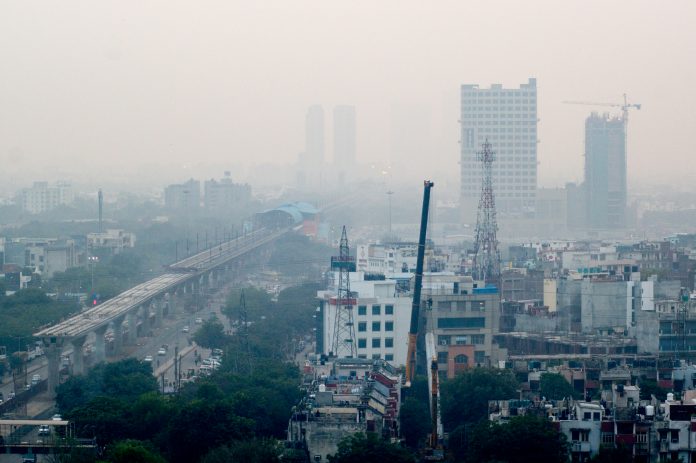The Potsdam Institute for Climate Impact Research analysed real-time data to understand the impact of this unprecedented lockdown on global carbon emissions
In April, the world stood still. Global economies froze as industries came to a halt, to attempt to bring the 2020 dominating COVID-19 virus under control. As people retreated from public life, the impact was visible on the environment. Dolphins swam in the canals of Venice, and the pollution-clogged skies of cities like Kanpur became clearer than residents could ever remember seeing.
By July, the world began to shake itself awake. Some economies kicked into full-gear, especially in China and several European countries. Throughout that time period, scientists studied the impact of such mass human behaviour change on the environment. The decline in emissions was greater than during the financial crisis of 2008, the oil crisis of the 1979, or even World War II. With real-world and real-time data, this study tracked the evolution of global carbon emissions throughout this time period.
8.8% less global carbon emissions than in 2019
An international team of researchers has found that in the first six months of this year, 8.8% less carbon dioxide was emitted than in the same period in 2019 – a total decrease of 1551 million tonnes. The groundbreaking study not only offers a much more precise look at COVID-19’s impact on global energy consumption than previous analyses. It also suggests what fundamental steps could be taken to stabilise the global climate in the aftermath of the pandemic.
“What makes our study unique is the analysis of meticulously collected near-real-time data” explains lead author Zhu Liu from the Department of Earth System Science at Tsinghua University in Beijing.
“By looking at the daily figures compiled by the Carbon Monitor research initiative we were able to get a much faster and more accurate overview, including timelines that show how emissions decreases have corresponded to lockdown measures in each country. In April, at the height of the first wave of infections, when most major countries shut down their public life and parts of their economy, emissions even declined by 16.9%. Overall, the various outbreaks resulted in emission drops that we normally see only on a short-term basis on holidays such as Christmas or the Chinese Spring Festival.”
The study, published in the latest issue of Nature Communications, shows which parts of the global economy were most impacted.
“The greatest reduction of emissions was observed in the ground transportation sector,” explains Daniel Kammen, professor and Chair of the Energy and Resources Group and also professor in the Goldman School of Public Policy, University of California, Berkeley.
“Largely because of working from home restrictions, transport CO2 emissions decreased by 40 % worldwide. In contrast, the power and industry sectors contributed less to the decline, with -22 % and -17 %, respectively, as did the aviation and shipping sectors.
“Surprisingly, even the residential sector saw a small emissions drop of 3 %: largely because of an abnormally warm winter in the northern hemisphere, heating energy consumption decreased with most people staying at home all day during lockdown periods.”
The study used from data in over 200 countries
To create a nuanced and meaningful insight, researchers based their estimates on a wide array of data: precise, hourly datasets of electricity power production in 31 countries, daily vehicle traffic in more than 400 cities worldwide, daily global passenger flights, monthly production data for industry in 62 countries as well as fuel consumption data for building emissions in more than 200 countries.
The researchers also found strong rebound effects. With the exception of a continuing decrease of emissions stemming from the transportation sector, by July 2020, as soon as lockdown measures were lifted, most economies resumed their usual levels of carbon emissions. But even if they remained at their historically low levels, this would have a meaningless impact on the long-term CO2 concentration in the atmosphere.
The way forward is to overhaul industries
Thus, the authors stress that the only valid strategy to stabilise the climate is a complete overhaul of the industry and commerce sector. Lockdowns for pandemics cannot be a tool of environmental control, and significant financial investment is necessary to change the atmosphere for the future.
“While the CO2 drop is unprecedented, decreases of human activities cannot be the answer,” says Co-Author Hans Joachim Schellnhuber, founding director of the Potsdam Institute for Climate Impact Research.
“Instead we need structural and transformational changes in our energy production and consumption systems. Individual behavior is certainly important, but what we really need to focus on is reducing the carbon intensity of our global economy.”











